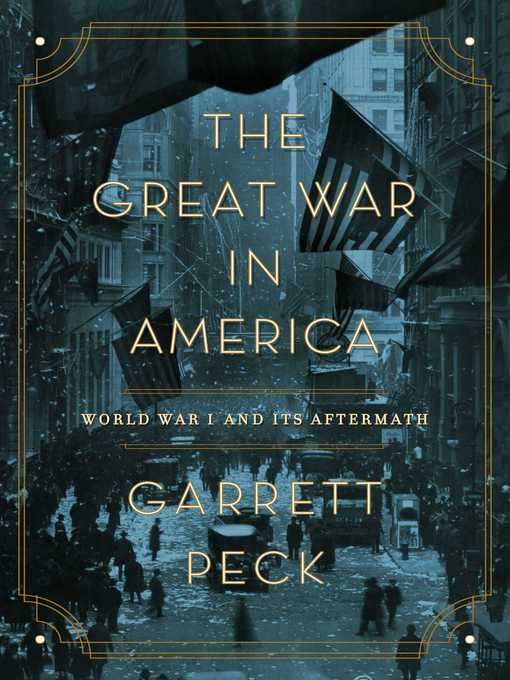
The Great War in America
کتاب های مرتبط
- اطلاعات
- نقد و بررسی
- دیدگاه کاربران
نقد و بررسی

October 1, 2018
A new history of World War I, viewed through the lens of America, where it "was an enormously contentious issue."Peck (Walt Whitman in Washington, D.C.: The Civil War and America's Great Poet, 2015, etc.) denies the biographical bent of his book, but Woodrow Wilson figured massively in the avoidance, eventual entrance, and especially the disastrous results of the war. One-third of America's population was first- or second-generation immigrants from the belligerent nations. Many disliked England or Germany, but seemingly everyone loved France, and they were the beleaguered nation. Other than the Navy, the American armed forces were in no shape to fight any war, let alone one thousands of miles away. The debate about whether to enter continued for more than two years. Ultimately, the U.S. decided to enter due to Germany's unrestricted U-boat warfare and the Zimmerman Telegram inviting Mexico to invade. Wilson first assumed a lofty position of arbiter trying to end the war without success. After American entry, he trampled on civil liberties, censored mail, and forbade Germans from owning guns or approaching military facilities. He stifled freedom of speech and basic civil liberties with the Sedition Act, Espionage Act, and Trading with the Enemy Act. American troops were young, poorly trained, and poorly armed. Gen. John Pershing insisted that his doughboys would not be co-opted, but the French and English had counted on incorporating that army into their own. Pershing also insisted on training for open warfare rather than the established trench warfare. The Battle of Château-Thierry put that idea to rest as Americans were mowed down by German machine guns. Furthermore, Wilson's rigid Fourteen Points caused more problems than solutions. The worst road blocks were Wilson's presence in Paris and his insistence that the League of Nations be included in the punitive, catastrophic Treaty of Versailles, but that's another book. Here, Peck proves a reliable guide to "a nation that was rapidly growing up--and yet not mature enough to accept its global responsibilities."Students of 20th-century American and European history will enjoy this American view of the war and its long-term consequences.
COPYRIGHT(2018) Kirkus Reviews, ALL RIGHTS RESERVED.

October 29, 2018
Peck’s workmanlike volume, which examines America’s role in WWI and subsequent events, often reads like a textbook. Peck produces a faithful, conventional chronology of President Woodrow Wilson’s trajectory from seeking “peace without victory” to joining the war. A heavy emphasis on Wilson’s personality and speeches, with little depth or illumination of American life beyond what happened in Washington or soldiers’ experiences, makes this more of a political biography than the comprehensive history it’s packaged as. The account of Wilson’s prickly, often arrogant idealism at the 1919 Paris Peace Conference is detailed, though, and the argument that Wilson’s call for a Democratic Congress provoked lasting domestic political enmity is insightful. One exception to the Wilson focus is Peck’s exploration of American belligerency among a large portion of the U.S. population with German heritage. His accounts of famed columnist H.L. Mencken’s pro-German writings and other Americans of German descent reflect a population mobilized by government propaganda and media reports (for example, that German-Americans were planning to attack American cities) to, among other things, rename frankfurters “hot dogs” and sauerkraut “liberty cabbage.” Passages on labor, leftist politics, the government’s stifling of dissent, women’s suffrage, and the dire state of race relations cover the facts, but have a bolted-on quality. This account fails to give life to a period whose events still affect the U.S. 100 years later. Photos. Agent: Tom Miller, Carol Mann Agency.

























دیدگاه کاربران